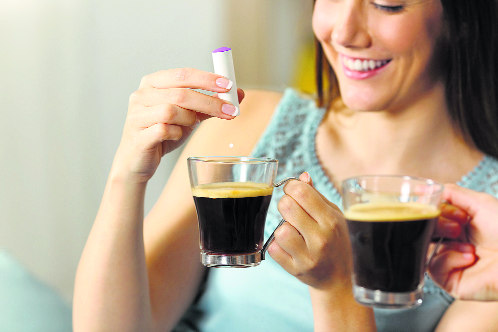
With the desire to stay fit and ensure a healthy lifestyle there has been an inclination towards choosing food that is low in calories. In today’s time, when most people are consciously putting an effort to try and remain fit, it is very important to consume food smartly.
Often we find that whenever we talk about a meal, we inevitably try to assess how much weight would we put on after consuming it. Most people who consult me are often concerned about their weight management and one of the most effective ways to treat this issue is by addressing the sugar element. People are conscious of consuming oily and fattening food items but forget about sugar, which constitutes a major part of their daily calorie intake.
Making the move from sugar to no sugar may be impossible, sugar being a key ingredient in Indian households. Here, safe low calorie sweeteners come into play.
Low-calorie sweetener is a food additive that provides a sweet taste like that of sugar while containing significantly less food energy than sugar-based sweeteners, making it a zero-calorie or low-calorie sweetener (LCS). Conversations often arise and lead to the safety of switching to low calorie sweeteners and their health benefits.
Unlike popular perception, low calorie sweeteners available in the market are thoroughly investigated and their safety is confirmed by many studies. It is not possible to market a new sweetener without the approval of the competent authorities. In India, Low-calorie sweeteners are regulated by FSSAI. WHO approves LCS based on their claims and recommended ADI (Acceptable Daily Intake).
Here are a few myths around low calorie sweeteners that we will bust. Ishi Khosla, renowned nutritionist shares her take on the myths and facts of the effects of low calorie sweeteners.
Myth 1: I often find people discussing that the consumption of low calorie sweeteners leads to increase in weight. Some people also believe that low calorie sweeteners might increase appetite. The idea is that low calorie sweeteners may be unable to activate the food reward pathway needed to make you feel satisfied after you eat.
Fact 1: Evidence from controlled studies suggests that low-calorie sweeteners don’t cause weight gain and may even be actually effective for weight loss. Safe low calorie sweeteners can support weight loss as a substitute for sugar in sweets, foods and beverages.
Myth 2: Recently, I have heard someone say, “Don’t use sugar substitutes in your tea, coffee or food. They can cause cancer.” There’s been a lot of debate about low calorie sweeteners and these discussions were prompted by the rise of sugar-infused drinks and foods over recent decades.
Fact 2: The reality is no scientific studies have found a direct connection between low-calorie sweeteners and cancer. In fact, cancer is multi-factorial. A much-debated sweetener described as causing cancer is aspartame. Questions on its safety arose in the mid-1990s amid a report that allegedly claimed it caused brain cancer. Yet after further analysis, no clear link between the sweetener and brain cancer was found. Neither Centers for Disease Control (CDC) or FDA was able to identify a specific set of symptoms associated with aspartame use that would constitute a public health hazard.
Myth 3: Sometimes when I’m scrolling through my phone I come across reports that say that low calorie sweeteners may cause unpleasant symptoms, such as headaches, depression and seizures in some individuals.
Fact 3: Low calorie sweeteners are unlikely to cause headaches, depression and seizures as per World Health Organization report when consumed within the recommended ADI limit. FDA scientists have reviewed scientific data regarding the safety of low calorie sweeteners in food and concluded that it is safe for the general population under certain conditions. Sucralose has been extensively studied and more than 110 safety studies were reviewed by FDA in approving the use of sucralose as a general purpose sweetener for food.
Choosing the right kind of alternative sweeteners is a way of maintaining lifestyle. —IANS
Join Whatsapp Channel of The Tribune for latest updates.



























